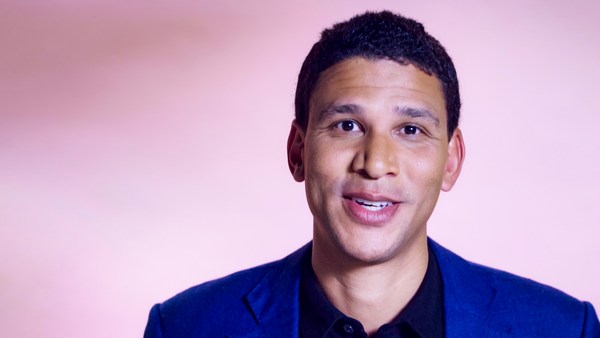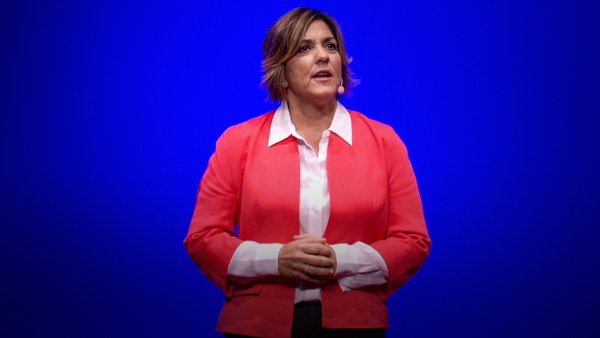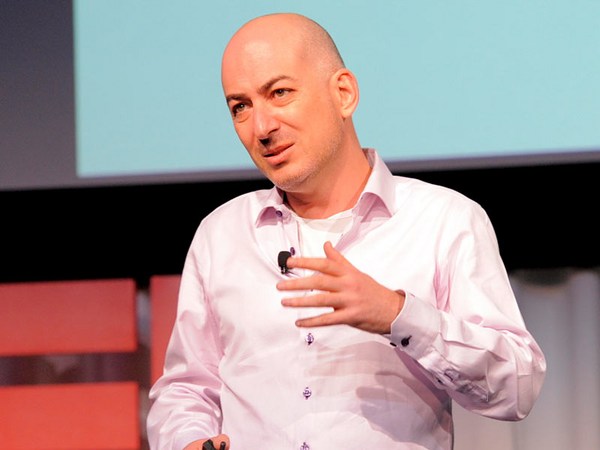When you think about money and your dreams and you're looking at your account, you're like, "My bank account does not align with my dreams."
[The Way We Work]
Financial health for a typical American household can be stressful. We know that 46 percent of all Americans would struggle coming up with 400 dollars in the event of an emergency. And 60 percent of all Americans will face that emergency within 12 months or less.
When you ask the question, "What does money mean to you," most people will say things like, "I feel anxious." And so the insecurities come. The shame comes. I think we have a fraught relationship with money, because it comes with judgment. When you're not able to pay your bills on time, you can personalize that. I don't want anyone to think that I'm not smart. I don't want anyone to know that I am very insecure with money. I don't want anyone to know that I am super stressed out. So now let's change the narrative.
[6 lessons on how to improve our relationship with money]
[1: Talk about it.]
You can't do it alone. And that's when your squad has to come in. It's taboo. We typically don't talk about our stresses when it comes to money. We need to come together as a group of friends, no judgment, no shame. Celebrate the fact that we've made a decision that we want to have a better relationship with money. That is worth applauding or snapping your fingers about.
Once you've done that, then you get real. Nothing should be off-limits. Where does this relationship come from? Why am I spending all this money on things that don't align with my goals? What are your fears? What are your hopes? What are your dreams? But then we start to take action. What can we do this week? Or what can we do this month?
[2: Understand what money is]
Money is not the end-all be-all. It's the mechanism to accomplish whatever your goals are. It does not define you. It's just a mechanism to accomplish what matters to you most.
[3: Identify what matters to you ... ]
Ask yourself one fundamental question: what are you saving for? If you're saving for a car, if you're saving to pay down your debt, if you're saving for that rainy day fund, it will include short-term goals and it will include long-term goals.
[4: ... and then really picture it.]
Visualize what you're really trying to accomplish. A vision board is visual representation of what you're saving for. So if we break it down, go get a poster board. Get your markers, get your glitter. Take magazine pictures, cut it all out. Have that picture of that great trip. Have the picture of you paying down your student debt. The vision board sounds like, "Oh, how can that really help?" The point is your goals need to align with your behaviors, and the vision board is really a representation of where you wanna go and then how you live your life, and in the meantime are the steps to really get there.
[5: It's not what you make, it's what you keep.]
It's not about what you make, it's about what you keep. It's about understanding do I have the ability with what I'm making to take care of my basic needs? And if not, what adjustments do I need to make? And then we start to break it down and talk about the tools. We start to say, "Do we have our savings account, auto-save?" Set it and forget it, or every day, put a dollar a day. Whatever that rhythm is for you, the goal is the rhythm, not the amount. You can start slow. You can start small, but you have to start now. And then let me give you a trick, we all have impulses. Many times, because the phone is always with us, we start shopping. Go out to any site, shop up, put it in your cart. Just don't hit buy. Wait 24 hours, go back and ask yourself, "Do I really need it? What about these items map to my goal?" And if it's nothing, hit delete and you got your fix.
[6: Be good to yourself.]
It's also important to know that your self-worth is not determined by your net worth. This is something that we can do better about. You celebrate your wins. And when you make that misstep, no judgment, no shame. Just get back at it.





